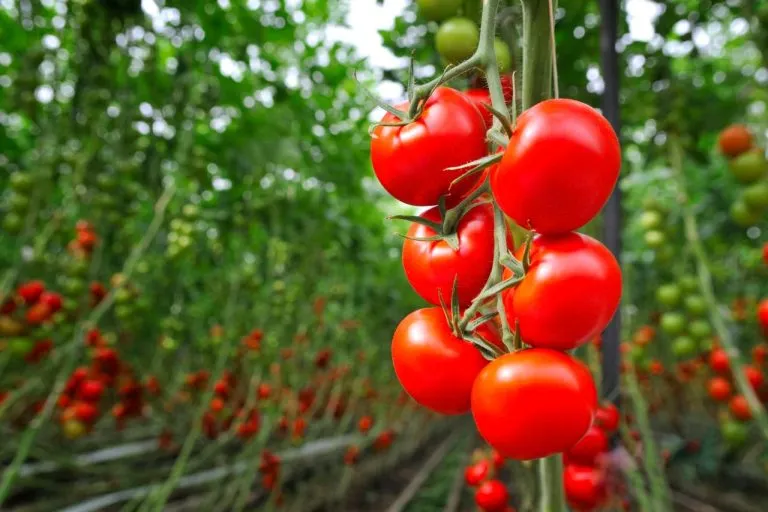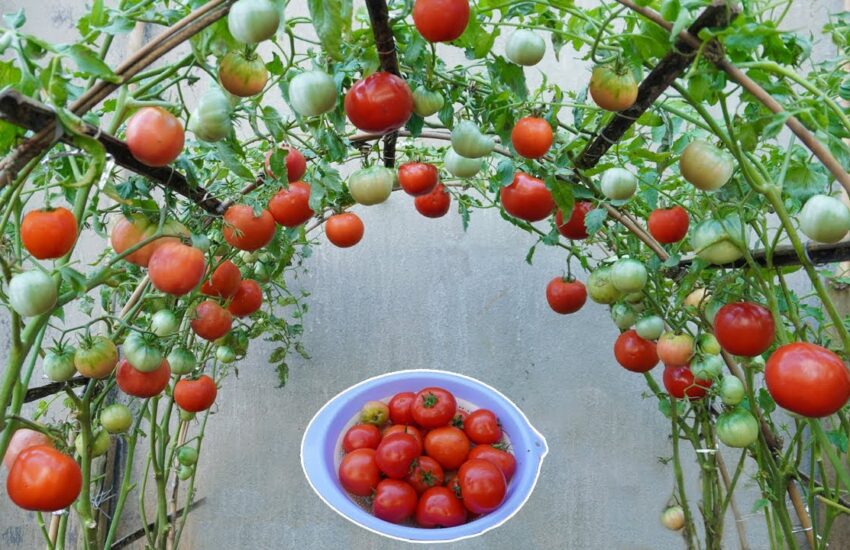
Tomatoes are a staple in many gardens around the world. Juicy, flavorful, and versatile, they’re used in a multitude of culinary dishes. Whether you’re an amateur or a seasoned gardener, you may find yourself yearning for a way to supercharge the growth of these ruby-red fruits. One route to achieving an abundant harvest lies in the use of specific ingredients known to enhance tomato growth. In this article, we delve into the power of eight such ingredients and the unique benefits they bring.
1. Bone Meal: Natural Source of Phosphorus

Understanding Bone Meal:
Bone meal is a byproduct of the meat industry, made from finely ground animal bones. It’s an organic fertilizer packed with phosphorus, a critical nutrient for plants, especially in the early stages of growth.
Benefits for Tomatoes:
Tomatoes require phosphorus to develop a robust root system. A stronger root system means that the plant can draw more nutrients and water from the soil, paving the way for healthier fruits. Bone meal also aids in the formation of flowers, ensuring that your tomato plants are prolific.
How to Use:
When preparing your garden bed or pot, work the bone meal into the soil. It’s a slow-release fertilizer, ensuring a steady supply of phosphorus throughout the growing season.
2. Organic Compost: Nourish the Soil

Understanding Organic Compost:
Compost is decayed organic matter. Made from kitchen scraps, yard waste, and other organic materials, it’s rich in essential nutrients.
Benefits for Tomatoes:
Compost enhances soil structure, making it easier for tomato roots to spread. It also improves water retention, ensures better drainage, and slowly releases essential nutrients.
How to Use:
Add a good amount of compost to the planting hole or mix it into the soil before planting. Remember to mulch the top layer of soil with compost to deter weeds and retain moisture.
3. Epsom Salt: The Magnesium Miracle

Understanding Epsom Salt:
Contrary to its name, Epsom salt is not like table salt. It’s a mineral compound high in magnesium and sulfate.
Benefits for Tomatoes:
Magnesium is vital for plant growth. It aids in photosynthesis, nutrient uptake, and the creation of amino acids. Epsom salt can prevent blossom end rot, a common tomato ailment, by ensuring a balanced calcium intake.
How to Use:
Dissolve a tablespoon of Epsom salt in a gallon of water and use it to water your tomato plants. This can be done monthly.
4. Fish Emulsion: Rich and Balanced Nutrition

Understanding Fish Emulsion:
A liquid, organic fertilizer, fish emulsion is derived from the remnants of fish processing.
Benefits for Tomatoes:
Fish emulsion offers a balanced blend of nitrogen, phosphorus, and potassium. These primary nutrients promote vigorous growth, ample flowering, and substantial fruiting.
How to Use:
Apply the diluted fish emulsion (as per package instructions) to the soil every couple of weeks during the growing season.
5. Coffee Grounds: Acidifying and Enriching

Understanding Coffee Grounds:
Used coffee grounds are acidic and rich in nitrogen, a vital nutrient for plants.
Benefits for Tomatoes:
Tomatoes thrive in slightly acidic soil. Coffee grounds can help maintain this pH level while offering a nitrogen boost, ensuring lush, green growth.
How to Use:
Sprinkle used coffee grounds around the base of the tomato plants or mix them into the soil.
6. Eggshells: Calcium Boost

Understanding Eggshells:
Eggshells are primarily made up of calcium carbonate.
Benefits for Tomatoes:
Calcium is crucial for cell wall development in tomatoes. It prevents blossom end rot and ensures firm, healthy fruits.
How to Use:
Crush the eggshells and sprinkle them around the tomato plants. As they decompose, they release calcium, enriching the soil.
7. Seaweed Extract: Trace Minerals and Hormones

Understanding Seaweed Extract:
Derived from marine plants, seaweed extract is a liquid fertilizer high in trace minerals and growth hormones.
Benefits for Tomatoes:
The natural hormones in seaweed promote faster growth and increased yield. The trace minerals ensure overall plant health.
How to Use:
Apply diluted seaweed extract to the soil or use it as a foliar spray every few weeks.
8. Molasses: Feeding the Microbes

Understanding Molasses:
Molasses is a dense byproduct of the sugar-making process, loaded with vitamins, minerals, and carbohydrates.
Benefits for Tomatoes:
Molasses is a fantastic soil conditioner. It feeds the beneficial microbes in the soil, enhancing soil fertility and ensuring the plants get maximum nutrients.
How to Use:
Mix molasses with water (a couple of tablespoons per gallon) and water the tomato plants with this solution once a month.
Conclusion:
Accelerating the growth of tomato plants is not merely about rapid results but also about ensuring quality yields. By incorporating these eight ingredients into your gardening routine, you’re investing in the health of the soil and the vitality of the plants. These natural additives promise not just an abundant harvest but also tomatoes that are richer in flavor and nutrients. Happy gardening!
